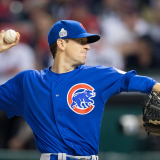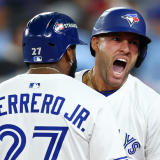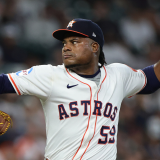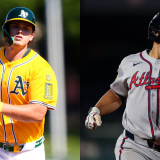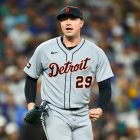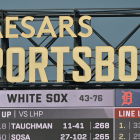Snyder's Soapbox: Don't let voter fatigue invalidate this MLB awards season
Whether or not a player has won before shouldn't matter
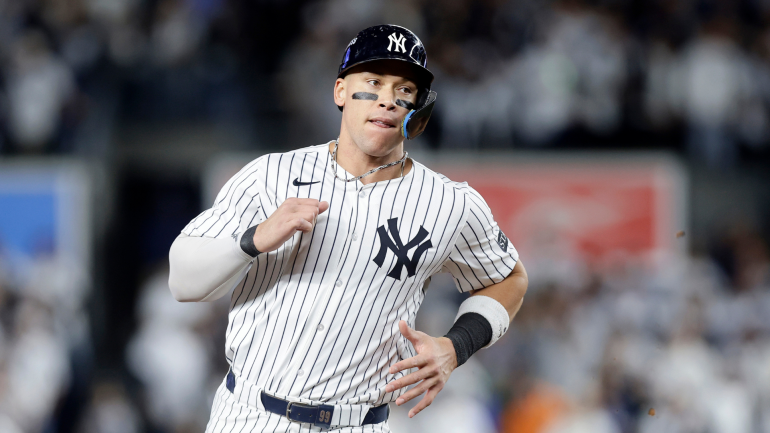
Welcome to Snyder's Soapbox! Here, I pontificate about matters related to Major League Baseball on a weekly basis. Some of the topics will be pressing matters, some might seem insignificant in the grand scheme of things, and most will be somewhere in between. The good thing about this website is that it's free, and you are allowed to click away. If you stay, you'll get smarter, though. That's a money-back guarantee. Let's get to it.
It's awards week, so we'll run with an awards-themed soapbox. The job today is to tsk, tsk at voter fatigue.
In other words, we're talking about people getting tired of a certain player winning awards and then finding a way to give the plaque to an inferior player. By no means is this baseball-specific. I immediately thought about Karl Malone winning NBA MVP over Michael Jordan in 1997. We could argue the merits of both players, but we could also ask a simple question: Had Jordan never won MVP before, would the outcome of the vote have been the same?
Hmm ...
Anyway, we'll stick to baseball. We can trace the origins of voter fatigue all the way back to one of the first iterations of MVP. In 1922, the American League created an award for "the baseball player who is of the greatest all-around service to his club." Prior award winners were ineligible. How stupid is that? The player who is of greatest all-around service to his team, unless he's won the award before, is the winner? C'mon. This is why Babe Ruth famously only won one MVP.
Fortunately, when the BBWAA launched the current MVP awards in 1931, there was no such stipulation. Still, fatigue can be found.
In 1951, Stan Musial had already won three MVPs and Jackie Robinson had one. Dodgers catcher Roy Campanella won the MVP, but both Musial and Robinson were noticeably better. Mickey Mantle and Willie Mays should have won more MVPs than they did. More recently, how about Jeff Kent over Barry Bonds in 2000? This might've been partially due to which team made the playoffs -- but fatigue can talk people into arguments like that! -- but Ryan Howard over Albert Pujols in 2006 doesn't look great and that was when Pujols only had one MVP. There's a case for Pujols in 2010 too.
There was a craze with voters and closers for a bit over a decade, but Roger Clemens finishing third in 1992 AL Cy Young voting is a bit ridiculous. Dennis Eckersley won -- again, the closer thing -- but Jack McDowell finished second and Clemens was third. Clemens led the league in ERA, 0.77 better than McDowell's while he only won two fewer games. Greg Maddux's fourth-place finish in 1998 just screams fatigue, as does Rick Porcello over Justin Verlander in 2016.
It isn't the biggest deal in the world, but it still bothers me. Is the MVP for the most valuable player or for the most valuable player we're not tired of seeing win the award? Is the Cy Young for the best pitcher or the best pitcher who hasn't won it too many times?
This is a concern moving forward with Aaron Judge and Shohei Ohtani. Judge might win his third MVP in four years this season, but voter fatigue in part might cost him. Ohtani is in line to win his fourth MVP in the last five years and it's possible he'll be fighting voter fatigue in future years. We need to guard against this. Bonds is the only player ever with more than three MVPs and Ohtani has a chance to catch him at seven. Maybe he falls short on merit, but merit should be the only consideration.
We can always strive to be better and to learn from past mistakes. Even if the best players pile up seven MVPs like Bonds -- he should've won nine or even 10, by the way -- that shouldn't affect future voting. The best player should win MVP just like the best pitcher should win Cy Young. We don't need to spread these things around like participation trophies.


